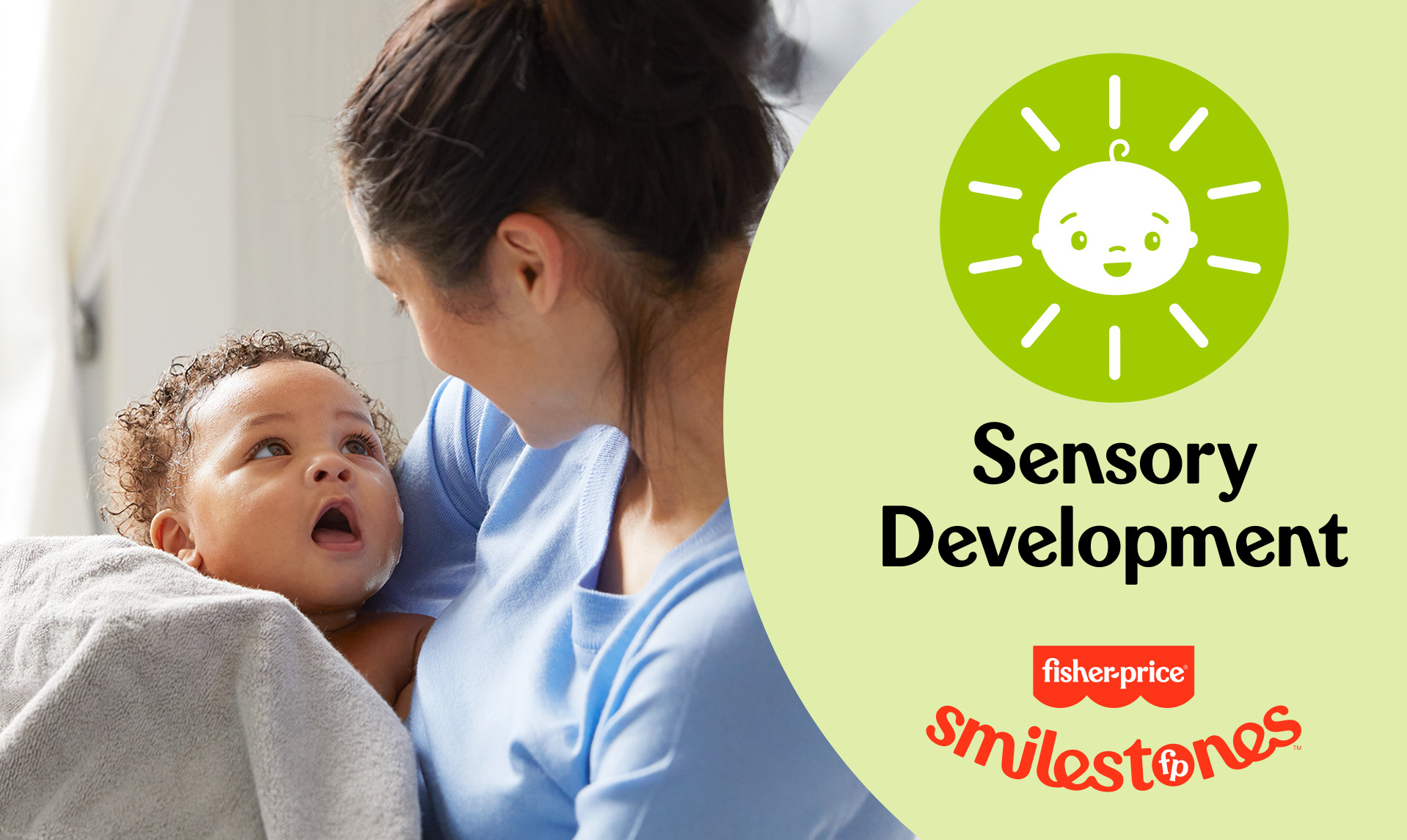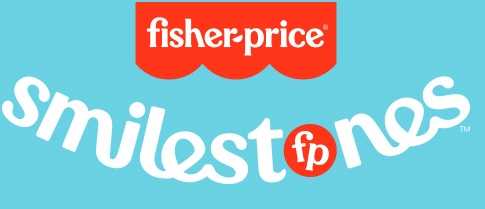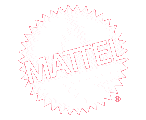- {"key":"Home","value":"\/"} Home
- {"key":"Mattel Playroom","value":"\/en-gb\/blogs\/playroom"} Mattel Playroom
- {"key":"Tips for Parents","value":"\/en-gb\/blogs\/playroom\/tagged\/en-gb-category-tips-for-parents"} Tips for Parents
Hello, senses! Sensory Tips from a Child Development Expert
July 27, 2023

It seems like sensory experiences are a trending topic lately. It makes sense 😊, because our senses are the way we all learned about the world as babies. Hi, I’m Lisa--a child development expert and a mom of two. If you’re reading this article, you’re most likely looking for info about your baby’s sensory development. And that’s where I can help!



Tips to get their senses growing!
Here are some sensory-building thoughts for you and your little one:


1. Black & white is right (at first).
Trying to work on sensory development with toys or nursery décor that’s black and white is popular—and good for developing eyes. But at around 2-3 months, babies start to decipher more colors, like red. Try adding more high-contrast colors to keep your baby’s senses engaged.


2. Let them explore.
Babies are new here--they need to explore absolutely everything! Giving them opportunities to do that will not only help develop their senses, but start building cognitive, physical and social-emotional skills.


3. Toys as sensory tools.
Toys with mirrors provide self-discovery. Gyms with overhead toys promote eye-tracking, toys with auditory feedback (sounds or lights or both) help with cause and effect. And of course, textured teethers—all babies start their sensory exploration by putting things in their mouths!


4. Beware sensory overwhelm.
If you and your baby are playing with sensory toys, and they’re turning their head or getting fussy, they may be overstimulated. (As adults, we all understand sensory overload, right?) Try introducing one new toy or activity at a time to allow them to process the sensory information they’re taking in. Then add to it when you think they’re ready. If you’re concerned about your child’s reaction to sensory play, be sure to contact your pediatrician.
Surprising sensory suggestions
Here are a couple sensory tips you may not have thought of:


1. Turn diaper duty into a sensory experience.
Changing your baby’s diaper is a great opportunity to engage all their senses (except taste, that is!). The feel of the lotion on their skin, your touch, seeing your face, hearing you talk or sing—what a wonderful bonding time as well!


2. Encourage them to play with their food!
Yes, you read that right! When your baby is old enough, mealtime is the perfect sensory time, with different smells, tastes and textures for your baby to explore. So go ahead and let them get messy!


3. Hold it!
Once your baby is about 3 months old, try gently opening their fist to help them hold a small rattle. This will introduce a whole new way for them to engage their senses independently and help them begin to understand their actions can make things happen!


1. Turn diaper duty into a sensory experience.
Changing your baby’s diaper is a great opportunity to engage all their senses (except taste, that is!). The feel of the lotion on their skin, your touch, seeing your face, hearing you talk or sing—what a wonderful bonding time as well!


2. Encourage them to play with their food!
Yes, you read that right! When your baby is old enough, mealtime is the perfect sensory time, with different smells, tastes and textures for your baby to explore. So go ahead and let them get messy!


3. Hold it!
Once your baby is about 3 months old, try gently opening their fist to help them hold a small rattle. This will introduce a whole new way for them to engage their senses independently and help them begin to understand their actions can make things happen!








Parent check-in
Remember, your baby was born equipped with the necessary senses to discover the world. What we talked about here will just help them build on that. So trust your own parenting senses when doing what you think is best for your baby!
Gentle reminder: If you ever have concerns about your child’s development, trust your gut and reach out to your pediatrician.”

Bringing a smile to milestones.
Say hello to happier parenting. We’re here to help you celebrate the little victories, let go of expectations, and pick up more positivity. Because after more than 90 years of helping families, we’ve learned that development happens naturally when fun leads the way.
Learn MoreRelated Articles

How to Calm a Crying Baby: Simple (and Surprising) Solutions
“Why is my baby crying, again?!” It’s a question every parent has asked thems...

When Will Your Baby Begin to Walk? When They’re Ready!
“When will my baby start to walk?” As a child development expert, it’s a comm...


































